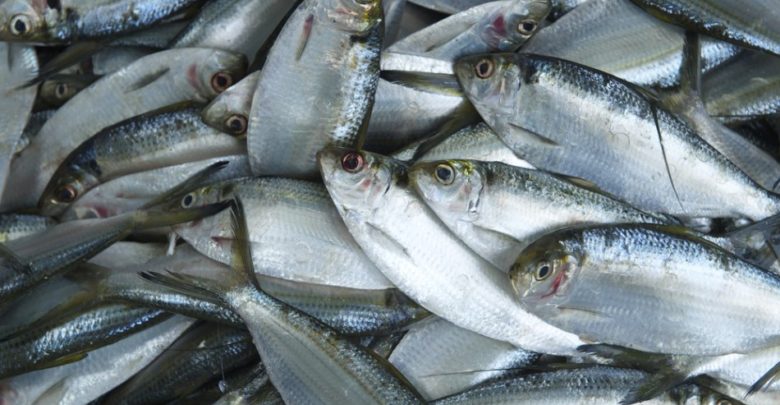Many Ghanaians will experience hunger and malnutrition by 2030 due to an anticipated drop in national fish production, according to Professor Berchie Asiedu, Dean of the School of Natural Resources at the University of Energy and Natural Resources (UENR).
He revealed that the nation’s fish consumption is expected to reach 888,096 tonnes by 2030.
However, total fish production is anticipated to constitute only about 43 per cent of the total fish requirement.
“This clearly shows that demand for fish consumption is expected to outweigh the national supply,” Prof. Asiedu explained.
At the current growth rate, per capita fish consumption is predicted to decline from 28 kg in 2018 to 23.9 kg in 2030. Prof. Asiedu noted that while fish consumption would increase, people would be eating less fish.
Prof. Asiedu made this known during a research update session organized by the School of Natural Resources in Sunyani, themed “Managing our Natural Resources: Academia-Industry Partnership for Sustainable National Development.” The session was attended by natural resources experts.
He emphasised that as the cheapest and most consumed animal protein (60 per cent) in the country, fish demand had increased rapidly over the past few years, growing from 960,000 tonnes in 2010 to 1.1 million tonnes in 2020.

During the same period, per capita fish consumption increased from 24.2 kg to 27.9 kg at a rate of 1.6 per cent per annum.
Given the gaps in production and consumption trends, Prof. Asiedu called for urgent policies to accelerate aquaculture development in the country.
He also highlighted the importance of improving fisheries management practices and exploring adaptive strategies to enhance the adaptive capacity of fishers to climate change.
In a later interview, Hanson Kodzo Dzamefe, Bono Regional Director of the Fisheries Commission, expressed concern about the nation’s over-reliance on marine fish and called for private-sector collaboration to develop the aquaculture sector.
He noted that aquaculture has huge potential for job creation and food security, stating that the inland fishing value chain could create millions of jobs if investments are made in the sector.
Mr Dzamefe encouraged unemployed youth and graduates to engage in commercial fish production, noting that aquaculture remains a lucrative business that can improve their livelihoods and contribute to national food security.
Latest Stories
-
I got an NLA job offer through Sammy Awuku – Kalybos reveals
37 minutes -
Kalybos reveals why he campaigned for NPP on Joy FM’s #ShowbizAtoZ
55 minutes -
24-Hour Economy at risk: Kofi Bentil warns Ghana may achieve below 30% of Mahama’s plan
1 hour -
‘We make excuses for waste and stealing’ – Kofi Bentil laments
1 hour -
’24-Hour Economy’ not much different from ‘Ghana Beyond Aid’ – Prof Bokpin
2 hours -
NYA CEO demands shisha ban
3 hours -
SHS girl shot dead at Bimbilla Fire Festival celebration
4 hours -
No firearms at Fire Festival – Small Arms Commission warns
5 hours -
Education Minister promises increase in Students Loan Trust Fund allocation from GH¢70m to GH¢150m
5 hours -
Stronger cedi, lower prices: Decathlon Ghana slashes prices by 35% on over 500 sports items
6 hours -
Zoomlion deepens Africa expansion with strategic partnership in Kenya
7 hours -
Stronger cedi, lower prices: Decathlon Ghana slashes prices by 35% on over 500 sports items
7 hours -
“Love on the Ropes”- Ebo Whyte impresses again with rollercoaster of love, lies and live band fire
7 hours -
Nzema East Blue Water Guards partner Axim police to foil galamsey operations around Draw River Forest Reserve
8 hours -
Minerals Commission orders Heath Goldfields to cease operations at Bogoso-Prestea Mine amidst possible license revocation
8 hours

